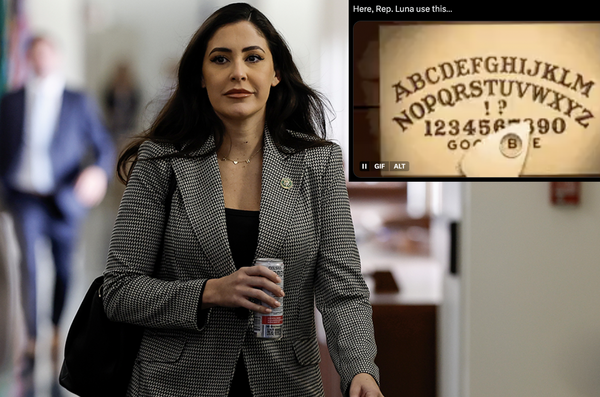Nothing is going well for Mark Zuckerberg and Facebook, known now as Meta Platforms (META).
On Sept,29, during Meta's weekly Q&A session, the billionaire informed employees that the company was entering an era marked by lackluster growth.
"For the first 18 years of the company, we basically grew quickly basically every year, and then more recently our revenue has been flat to slightly down for the first time," Zuckerberg said.
Meta also will reduce its workforce for the first time since it was founded in 2004.
For Meta, Challenges Abound
The company's third-quarter results, expected on Oct. 26, should reflect the colossal challenges facing Meta.
The economic slowdown is pushing companies to cut their advertising budgets. TikTok, Gen Z's favorite social network, is proving to be a formidable rival. Tim Cook, Apple's (AAPL) CEO, has closed the door in Zuckerberg's face by giving iPhone owners the right to decide which apps they allow to track their online movements.
In short, it has become increasingly difficult for Meta to serve targeted advertising to its more than 3.65 billion users.
What about the metaverse, the next big thing?
It's not working at the moment. The crypto craze, which prompted this buzzword, has died down. And for now, the metaverse, an immersive virtual world in which people will live parallel lives, is synonymous with abysmal losses for Meta.
The empire of social networks has gone into austerity mode, but investors don't think that'll be enough to bring the company back to its former growth trajectory. Meta's stock has lost more than 60% of its market value since January. Meta started the year valued at $905 billion. That figure is now $359 billion.
As for Zuckerberg, whose fortune is based on his Meta shares, his wealth has shrunk by $75.3 billion since January, according to the Bloomberg Billionaires Index. His fortune is $50.2 billion and it's no longer among the top 20 biggest on the planet.
Enter the WhatsApp Weapon
But Zuckerberg and his empire have a weapon to utilize, at least in the short and medium term: the messaging service WhatsApp.
The app, which Meta bought for $19 billion in 2014, has more than 2 billion users in more than 180 countries, according to various estimates. It's one of the most-downloaded apps.
And it's time for Zuckerberg to abandon his strategy of small steps toward the app and add advertising via WhatsApp as it does on other platforms.
So far, Zuckerberg has avoided this strategy, treating WhatsApp as too fragile to be disturbed. The CEO seems to think that running ads on WhatsApp with ads will drive away users.
There is, however, a difference between flooding the program with advertising and running no advertising at all, and it is this middle ground that Zuckerberg and Meta must find.
I'm a heavy WhatsApp user myself and I know I wouldn't give up the app if I started getting ads.
I'm not going to lie that it won't irritate me a bit, but I need WhatsApp too much. WhatsApp made me forget Skype and Viber. I use Telegram, Signal and Discord, which are encrypted messaging platforms, more for work, but WhatsApp is my daily exchange platform. I'm not the only one.
It's worth remembering that Meta and Zuckerberg are already trying to monetize the app. But users in the West might not have noticed the effort because it's targeting users in Latin America and Asia.
WhatsApp: Background and Opportunity
The company, created in 2009 by Brian Acton and Jan Koum, had started as a premium service. Users got a year free and thereafter paid 99 cents a year. WhatsApp later abandoned this model and refused in-app advertising.
To generate revenue, WhatsApp has implemented WhatsApp for Business and WhatsApp Pay. Businesses using WhatsApp can communicate with their customers by sending them digital catalogs. They can also sell their products and services directly via the messaging platform. WhatsApp may also store data for its business customers. WhatsApp charges businesses but it's free for consumers.
But all this is not enough to turn the platform into the cash cow that it can become if Meta finally decides to display ads.
One can imagine, as has been suggested, display ads in the WhatsApp status point. Or the company could place an ad-scrolling banner above the list of people with whom we have communicated, as its competitor KiK does.
Ads can also be displayed at the bottom of the screen so that they are visible but unobtrusive when a user scrolls through their communications.
Clearly, advertising can be introduced in a number of places without users abandoning the app in droves. Undoubtedly, there'll be grumbling and even some outrage, but ultimately users won't leave and more will still join. And here's why:
Why WhatsApp Users Will Stay: a Personal View
I am French. I was born in Cameroon in central Africa and have spent most of my life in Paris. I have traveled the world as a reporter and also to discover other cultures.
Before WhatsApp, keeping in touch with people I met during my travels was a luxury that I could not afford. Communications was expensive: When I lived in France, calling my mother in Africa cost me a fortune. She particularly discouraged me from calling her because she was aware of the cost.
I used prepaid telephone cards but calls dropped and the cards often didn't provide the number of calling minutes that I ostensibly had paid for. Basically, calling with these cards was a mess.
When Skype (MSFT) arrived, I was over the moon -- but it didn't really change the game.
And then WhatsApp was launched and everything changed for the better.
WhatsApp enables users to communicate easily with family, friends and acquaintances outside the U.S. It's a great deal since the cost of text messages to or from abroad remains exorbitant. (Granted, some telephone operators offer affordable unlimited text packages, but not all of them do.)
The app enables me to communicate free without having to buy local cards when I'm abroad. I have a big family and we have created WhatsApp discussion groups within the family circle to enable us to chat daily and spontaneously about subjects that concern us all.
These groups strengthen our family ties across the generations, even as we are geographically thousands of miles apart.
This morning, for example, my mom wished us all a good start to the week and everyone responded immediately with updates. We share our moods during the day and at the moment, worries, news, blunders, stress, trip experiences and, of course, photos and videos.
WhatsApp also tells you which of your contacts is online and whether a message you sent had been received.
More broadly, WhatsApp is easy to use, which is very important for senior citizens, many of whom struggle with technology.
Finally, WhatsApp is not censored in autocratic countries. And it truly helps that the messages sent across WhatsApp are end-to-end encrypted. So no one, even WhatsApp, can know what you and your contacts are discussing.
Meta and Zuckerberg have every reason to add ads to WhatsApp without concern that they'll lose substantial numbers of users.







